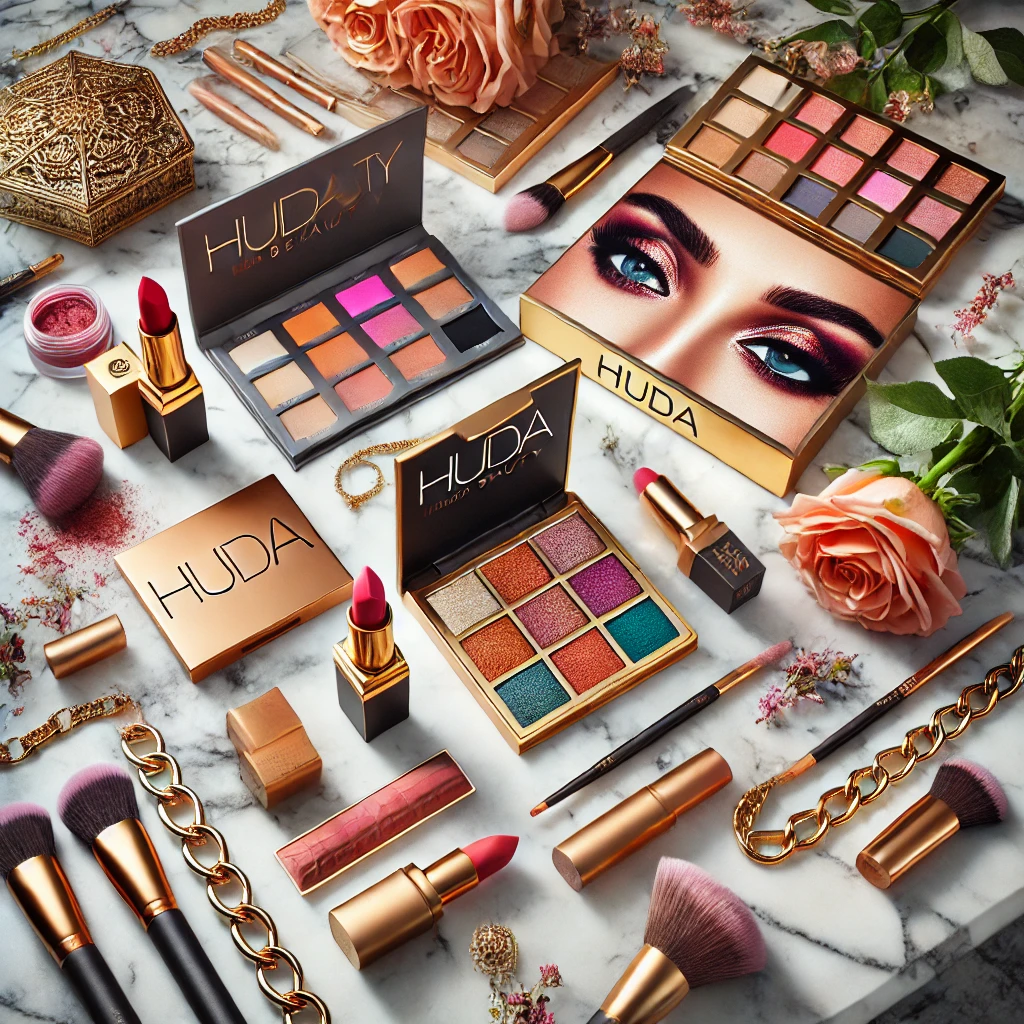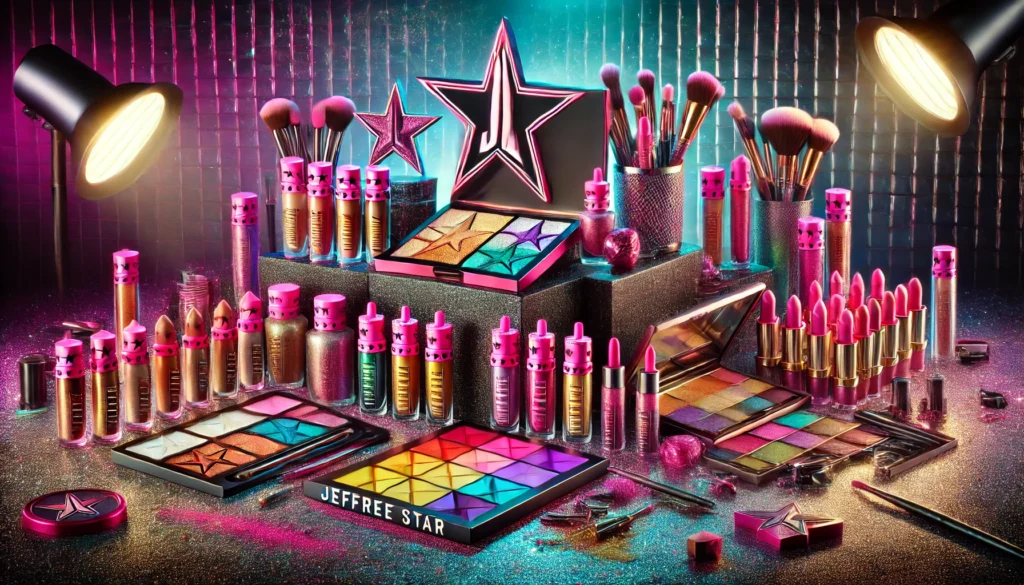Introduction:Influencer Makeup Brands
The global beauty industry has undergone a remarkable transformation over the last decade, driven by the rise of influencer makeup brands. These brands, created by popular influencers and celebrities, have challenged traditional beauty giants, setting new benchmarks for inclusivity, innovation, and authenticity. By leveraging their massive social media followings, influencers have reshaped how beauty products are marketed and consumed.
This comprehensive guide delves into the phenomenon of influencer makeup brands, exploring their rise, standout features, challenges, and influence on the broader beauty industry. We’ll also highlight key brands that have made a significant impact, along with addressing frequently asked questions about this growing trend.
The Evolution of Influencer Makeup Brands
1. The Social Media Connection
These influencers started by sharing tutorials, product reviews, and makeup tips, amassing millions of followers along the way. As their credibility grew, many transitioned from endorsing products to creating their own.
2. Addressing Market Gaps
One of the key drivers behind the success of influencer makeup brands is their ability to address market gaps. Influencers often listen to their audiences and understand their needs better than traditional companies. They’ve introduced diverse shade ranges, innovative packaging, and cruelty-free formulations that cater to modern consumers’ preferences.
3. Personal Branding as a Competitive Edge
Unlike traditional brands, influencer makeup lines thrive on personal branding. Consumers feel a deeper connection to these products because they are an extension of the influencer’s persona, values, and aesthetic. This personal touch fosters a sense of loyalty and trust.
Top beauty influencer makeup brands
1. Huda Beauty by Huda Kattan
Huda Kattan, a makeup artist and beauty blogger, turned her passion for cosmetics into a global empire. Launched in 2013, Huda Beauty gained popularity with its false eyelashes and later expanded into a full-fledged cosmetics brand.
Key Highlights:
- Known for high pigmentation and luxurious textures.
- Focuses on inclusivity with shades suitable for various skin tones.

2. Kylie Cosmetics by Kylie Jenner
Her brand, Kylie Cosmetics, expanded rapidly, offering everything from eyeshadows to blushes.
Key Highlights:
- Iconic Lip Kits with matching lip liners and liquid lipsticks.
- Marketing campaigns that heavily rely on Kylie’s social media presence.
- Limited-edition collections that create buzz and exclusivity.
For More articls visit, webmakeglow.com
3. Fenty Beauty by Rihanna
Launched in 2017, Fenty Beauty by Rihanna became an instant success, praised for its inclusive foundation range. With over 50 shades, the brand set a new standard for diversity in the beauty industry.
Key Highlights:
- Inclusive marketing campaigns featuring models of all skin tones.
- Innovative products like the Pro Filt’r foundation and Diamond Bomb highlighter.
- A focus on sustainability with eco-friendly packaging initiatives.
4. Jeffree Star Cosmetics beauty influencer makeup brands
Jeffree Star, a YouTube beauty guru, launched his brand in 2014. Known for its bold colors and edgy aesthetic, Jeffree Star Cosmetics has gained a cult following.
Key Highlights:
- Products like Velour Liquid Lipsticks and Extreme Frost highlighters.
- A reputation for high-quality formulations at competitive prices.
- Unique and daring marketing strategies that resonate with younger audiences.

5. Rare Beauty Best Influencer Makeup Brands
Rare Beauty, founded by Selena Gomez in 2020, stands out for its message of self-love and mental health awareness. The brand offers lightweight, user-friendly products designed for everyday wear.
Key Highlights:
- A percentage of sales supports mental health initiatives.
- Minimalistic yet effective designs.
- Products like the Soft Pinch Liquid Blush and Liquid Touch Weightless Foundation have become fan favorites.
What Sets Influencer Makeup Brands Apart?
1. Inclusivity at the Core
One of the most significant contributions of influencer brands is their commitment to inclusivity. They’ve led the way in offering diverse shade ranges, ensuring that people of all skin tones feel represented.
2. Direct Consumer Feedback
Influencers maintain a close relationship with their followers, using platforms like Instagram and TikTok to gather feedback. This real-time interaction allows them to tweak products and launch lines that align with consumer preferences.
3. Innovative Product Launches
Influencer brands often adopt unconventional marketing techniques, such as limited-edition drops, virtual try-ons, and interactive campaigns.
4. Sustainability and Ethical Practices
Many influencer brands prioritize ethical practices, such as cruelty-free testing and sustainable packaging. This aligns with the values of modern consumers, who increasingly demand transparency and responsibility from the brands they support.
Challenges Facing Influencer Makeup Brands
Despite their success, influencer makeup brands face unique challenges:
1. Over-commercialization beauty influencer makeup brands
As influencers transition from content creators to entrepreneurs, there’s a risk of losing authenticity. Over-commercialization can alienate followers who value genuine connections.
2. Fierce Competition
The beauty industry is highly competitive, with new brands launching every year. Staying relevant requires constant innovation and a deep understanding of market trends.
3. Personal Controversies
Influencer-driven brands are closely tied to their founders. Personal controversies or scandals can have a direct impact on sales and brand reputation.
Future Trends in Influencer Makeup Brands
1. Tech-Driven Innovations
Expect more Influencer Makeup Brands to incorporate technology, such as augmented reality (AR) for virtual try-ons and artificial intelligence (AI) for personalized product recommendations.
2. Expansion into Skincare
Many influencers are diversifying into skincare, offering products that combine makeup and skin benefits. Hybrid products like tinted moisturizers and serum-infused foundations are gaining popularity.
3. Deeper Sustainability Commitments
With growing environmental awareness, influencer brands are likely to adopt more sustainable practices, such as refillable packaging and zero-waste initiatives.
FAQs About Influencer Makeup Brands
1. What makes influencer makeup brands unique?
Influencer makeup brands are often seen as extensions of the influencer’s personality and values. They prioritize inclusivity, innovation, and ethical practices, setting them apart from traditional brands.
2. Are influencer makeup brands more expensive?
Pricing varies by brand. While some brands like Huda Beauty and Fenty Beauty fall into the premium category, others like ColourPop (collaborating with influencers) are more affordable.
3. Can influencer makeup brands compete with traditional brands?
Yes, many influencer brands have successfully competed with established names by leveraging personal connections, direct consumer feedback, and niche product offerings.
4. Are Influencer Makeup Brands for your skin tone?
Most influencer brands focus on inclusivity, offering products for various skin tones and types. However, it’s essential to check product descriptions and reviews to find the best match for your skin.
Conclusion
Influencer makeup brands have not only disrupted the beauty industry but also redefined it. By prioritizing inclusivity, sustainability, and authenticity, they have earned the trust of millions. From Huda Beauty’s bold innovations to Rare Beauty’s empowering message, these brands continue to inspire and influence beauty trends worldwide.
As consumers, we are witnessing a fascinating era where creativity meets commerce, and personal connections shape purchasing decisions. Whether you’re a beauty enthusiast or a casual user, influencer makeup brands offer something for everyone—proving that the future of beauty is as diverse and dynamic as the people it serves.
